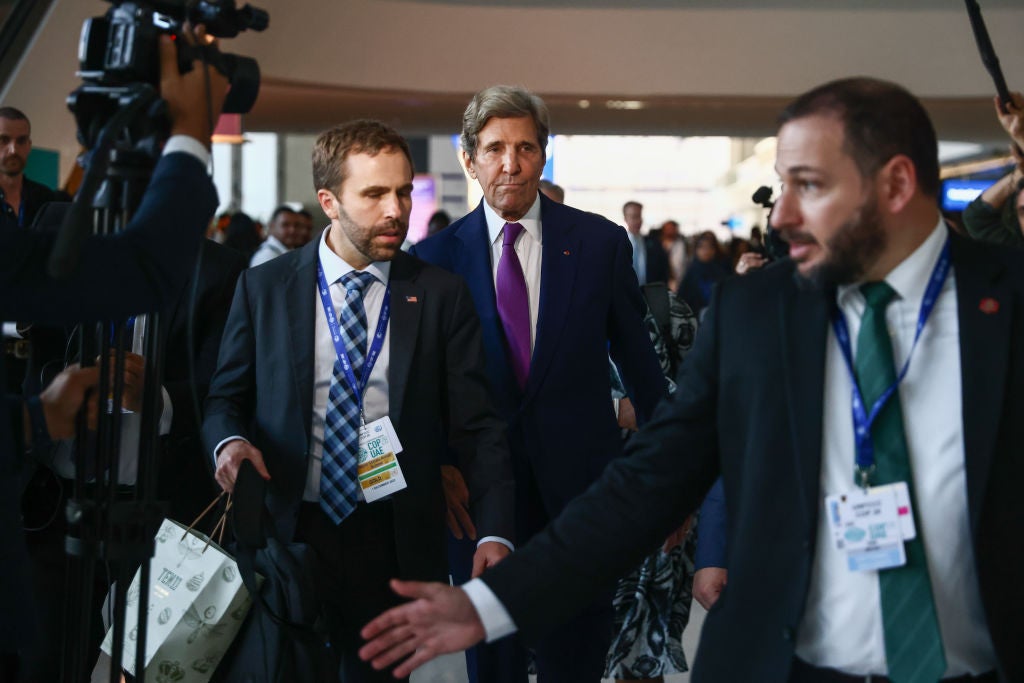
On Tuesday, US Special Climate Envoy John Kerry launched an international engagement plan to advance nuclear fusion, saying the technology will become vital in the energy transition.
The plan involves 35 nations and will focus on research and development, supply chain issues, regulation and safety.
At the COP28 summit in Dubai, Kerry said: “There is potential in fusion to revolutionise our world.”
Nuclear fusion involves heating two light hydrogen nuclei to extreme temperatures, causing them to combine into a large nucleus that releases energy, which can be used to generate electricity. This differs to traditional nuclear fission in which a heavy nucleus is split into two larger ones. Fusion is considered safer than fission, as the latter leaves large deposits of nuclear waste that are difficult to dispose of, whereas there is no long-lasting radioactive waste produced by fusion.
Signalling the technology’s burgeoning influence, the UK and US signed a partnership in November to advance the development and commercialisation of nuclear fusion technology.
However, there are scientific hurdles that need to be overcome before fusion can provide a reliable source of commercial electricity. For instance, there have only been a small number of experiments where enough energy has been produced for electricity generation.
Regulatory tailwinds and government incentives will also be required for the industry to grow, given the large investments involved. In the UK, this has been borne through the Fusion Futures Programme, under which the UK Government has assigned £650m ($794m) to advance fusion technology through the training of specialist labour. In addition to this funding, the government previously allocated £700m to UK fusion energy programmes for the period 2022–25.
The US included a fusion section in the Energy Act of 2020, which at the time could fund up to $415m in industry support for fusion. Since then, the Fusion Industry Association has proposed that the programme could be expanded to more than $1bn over five years.


